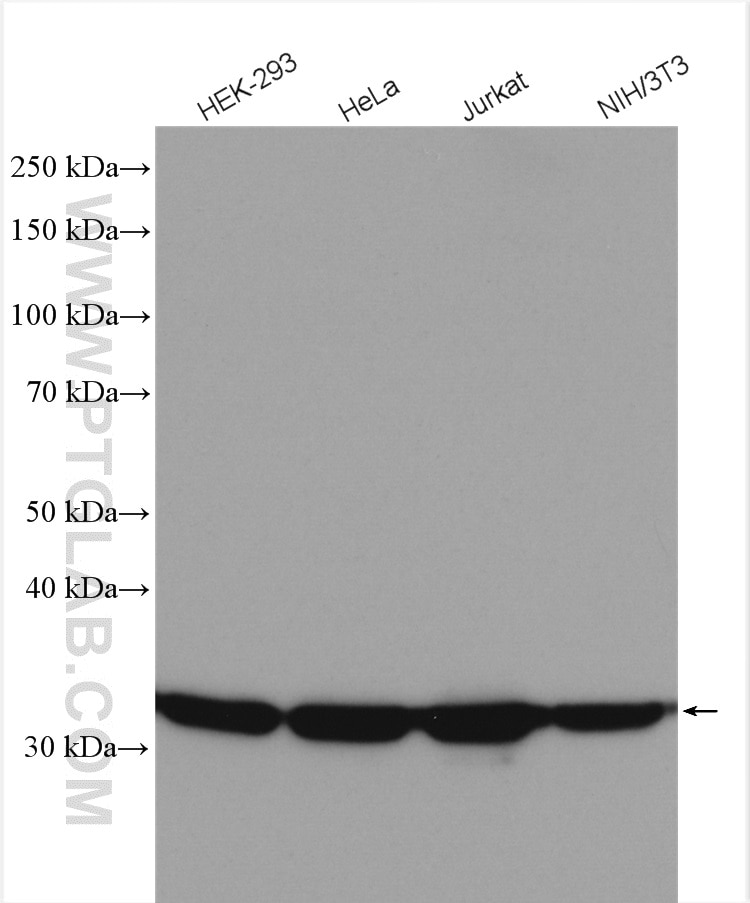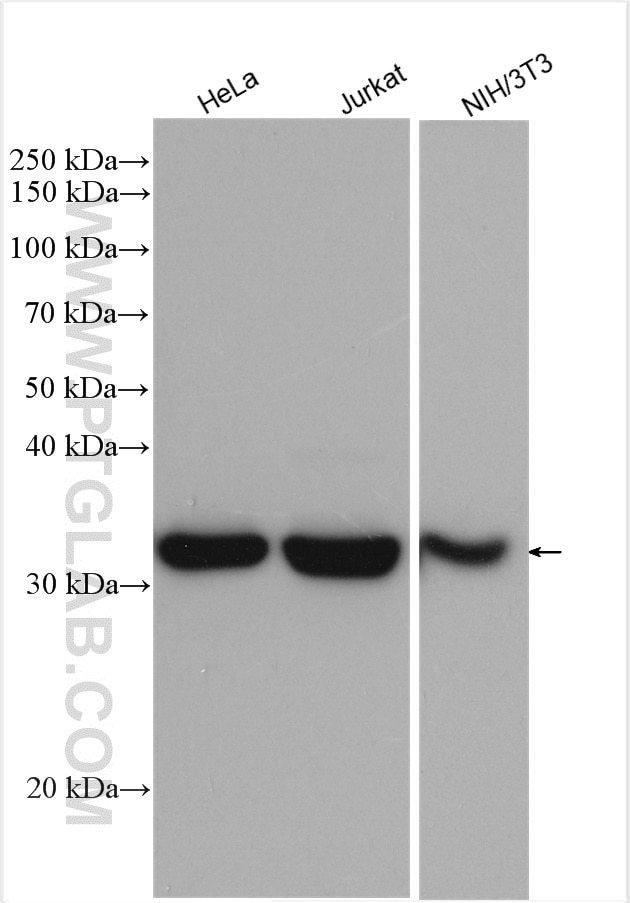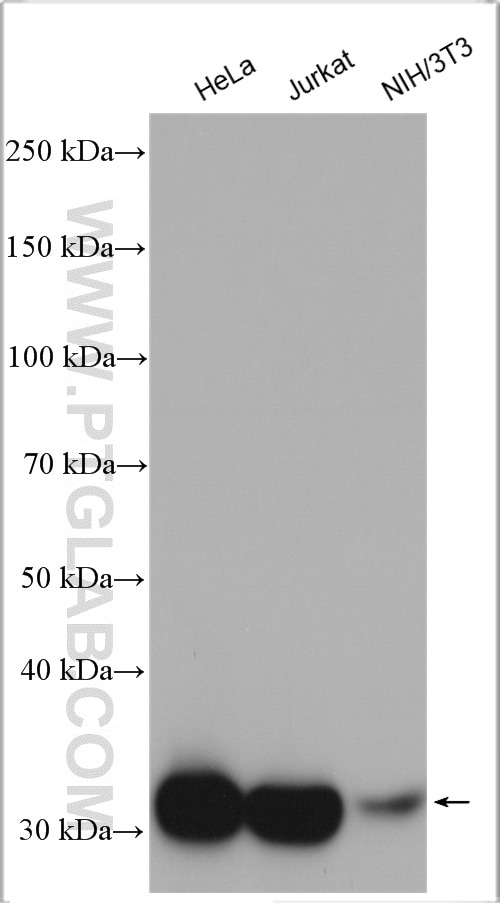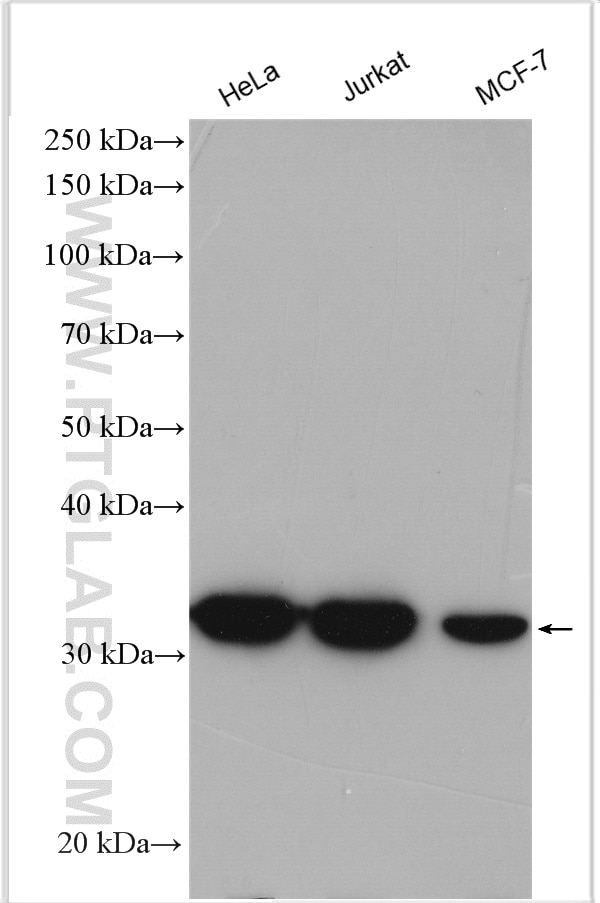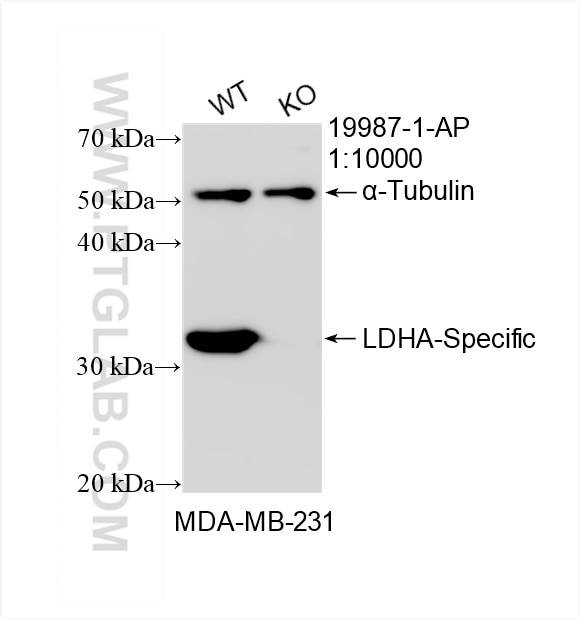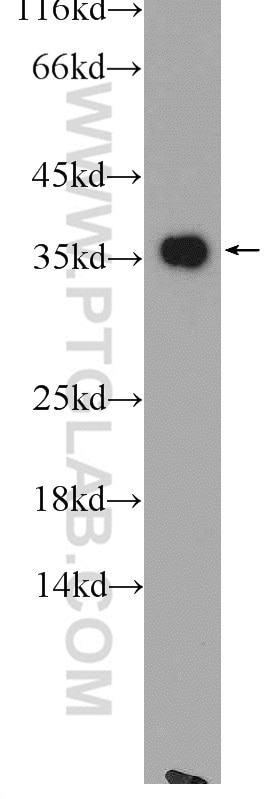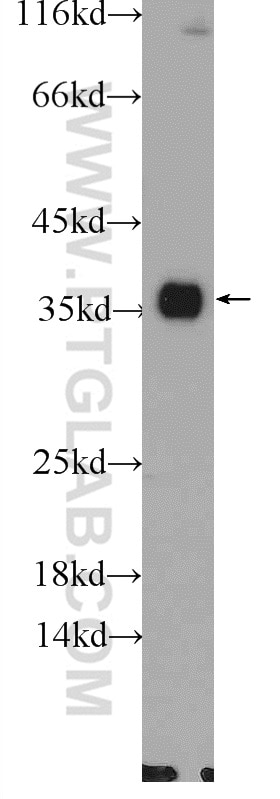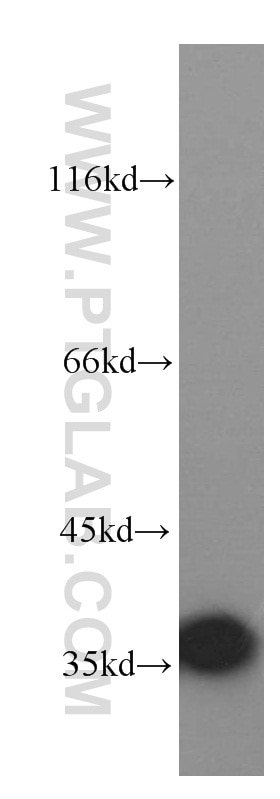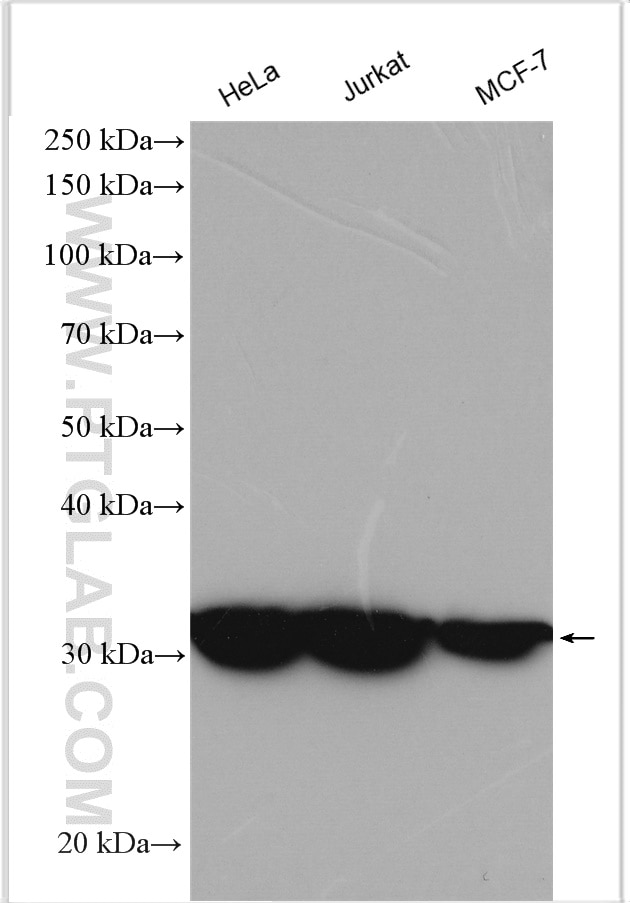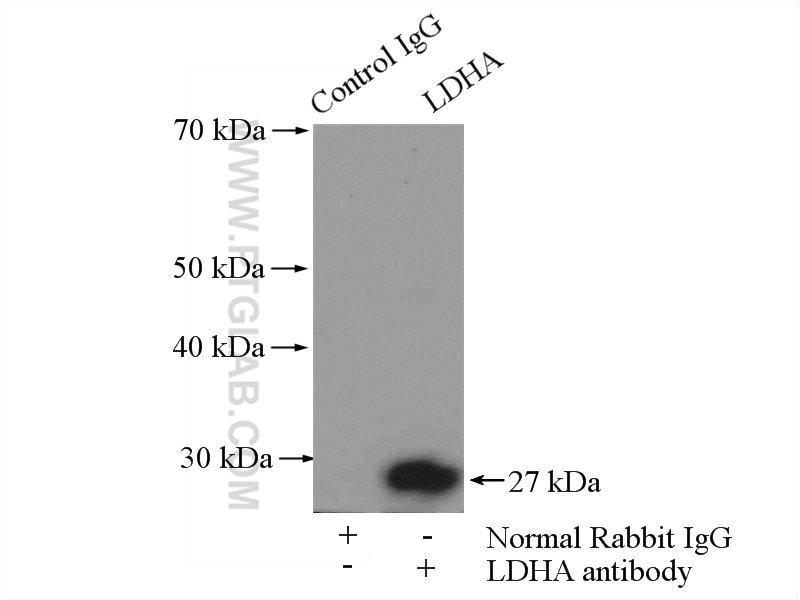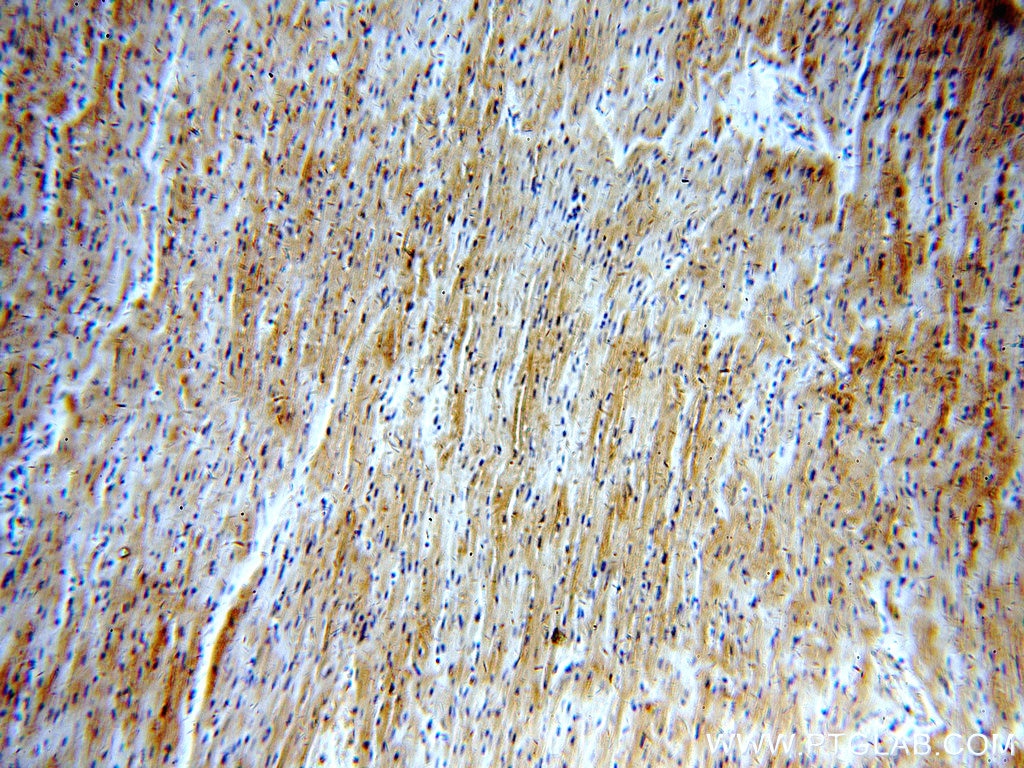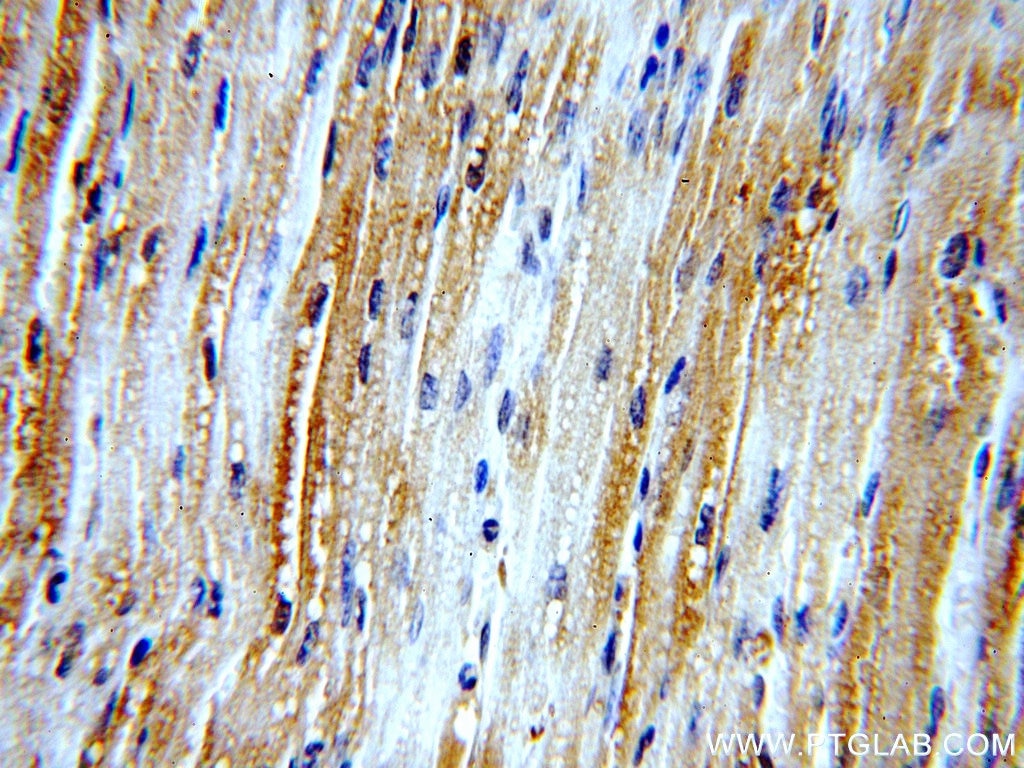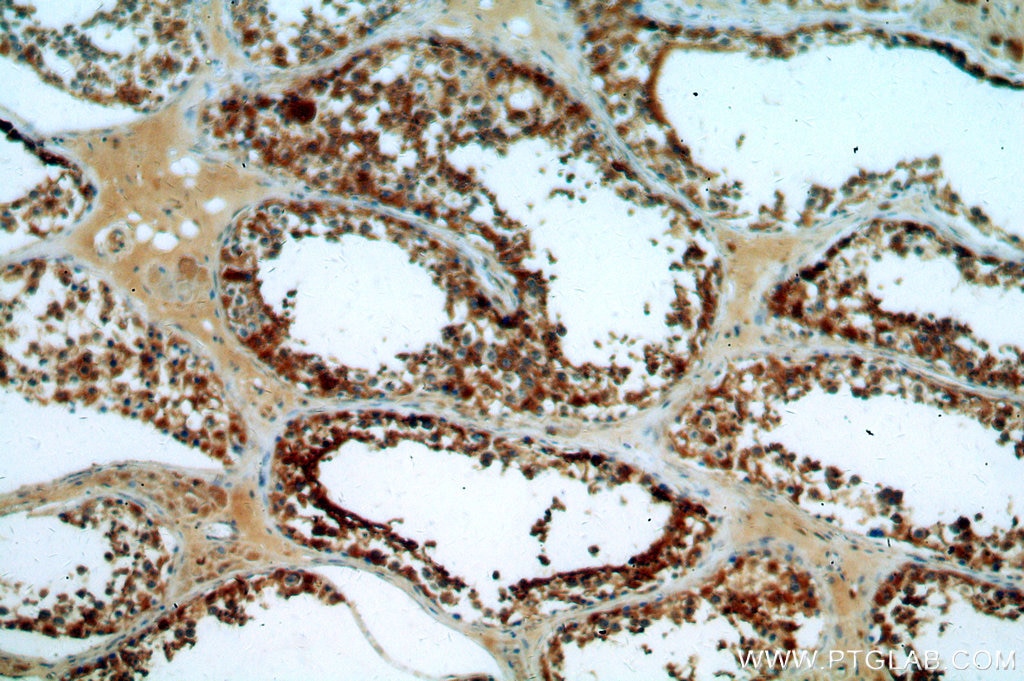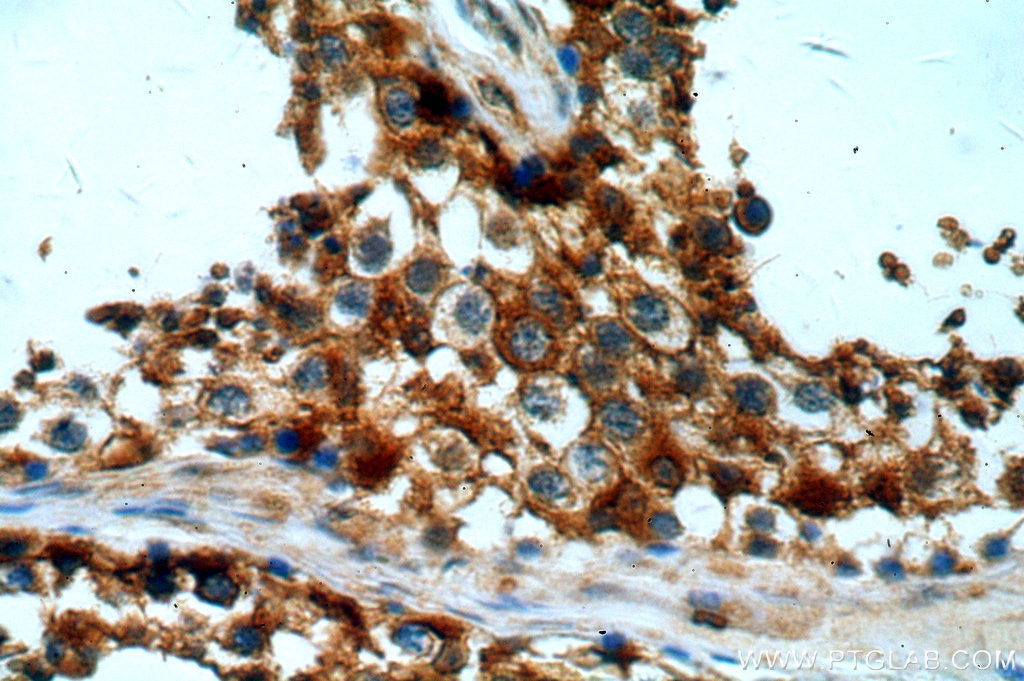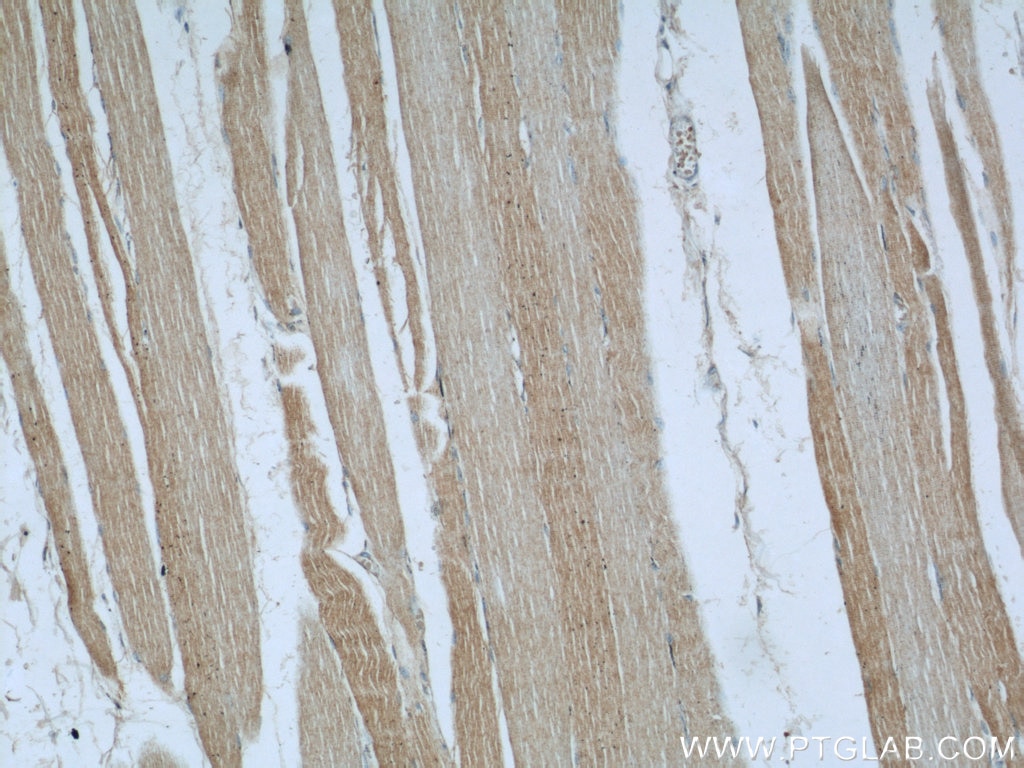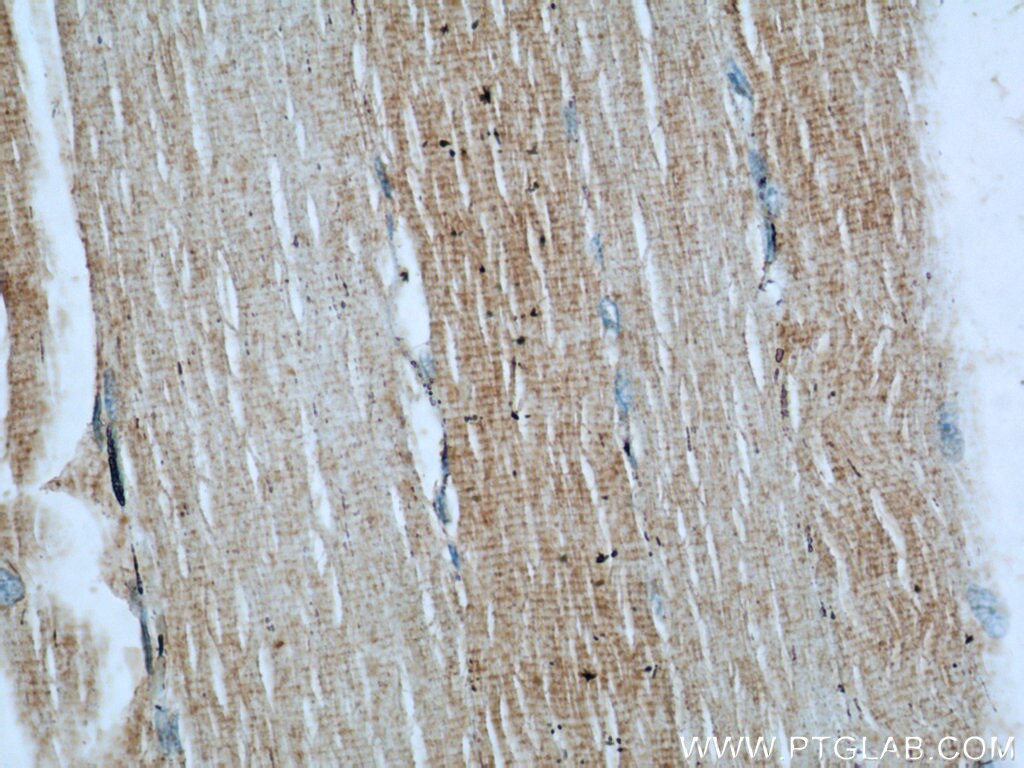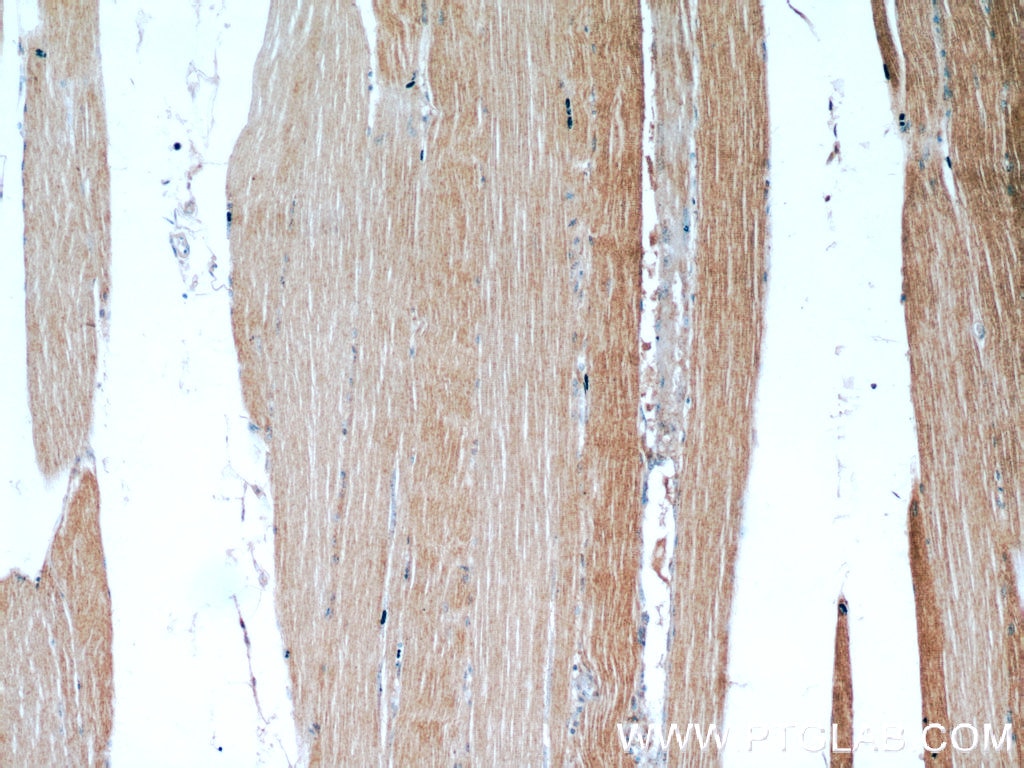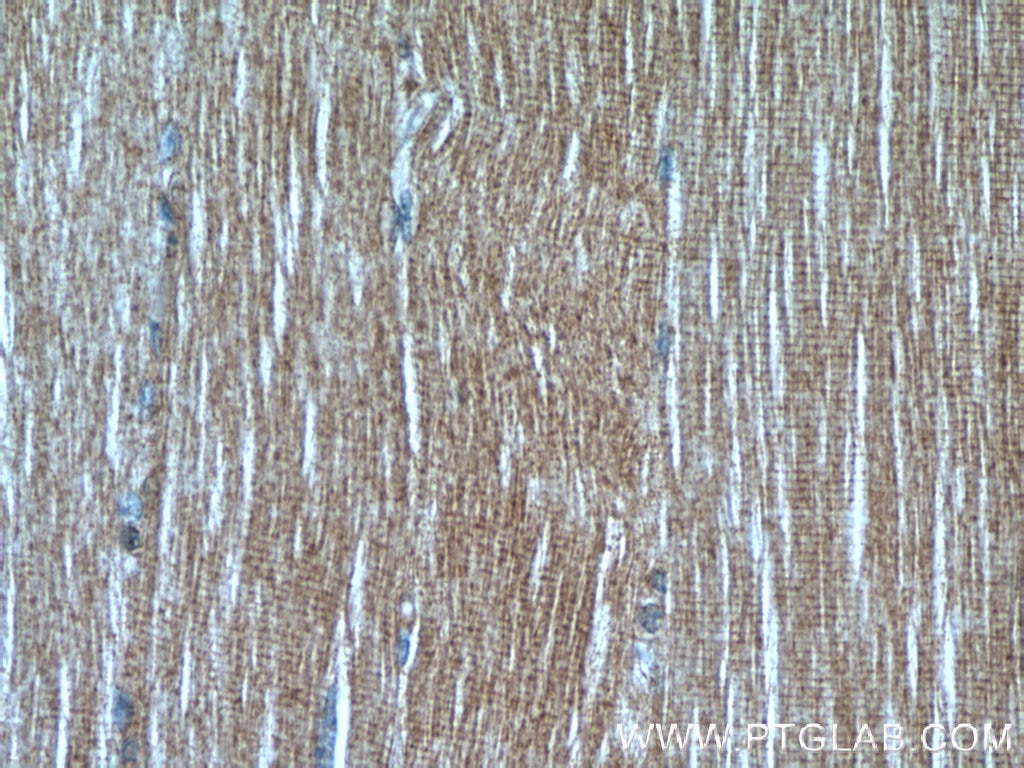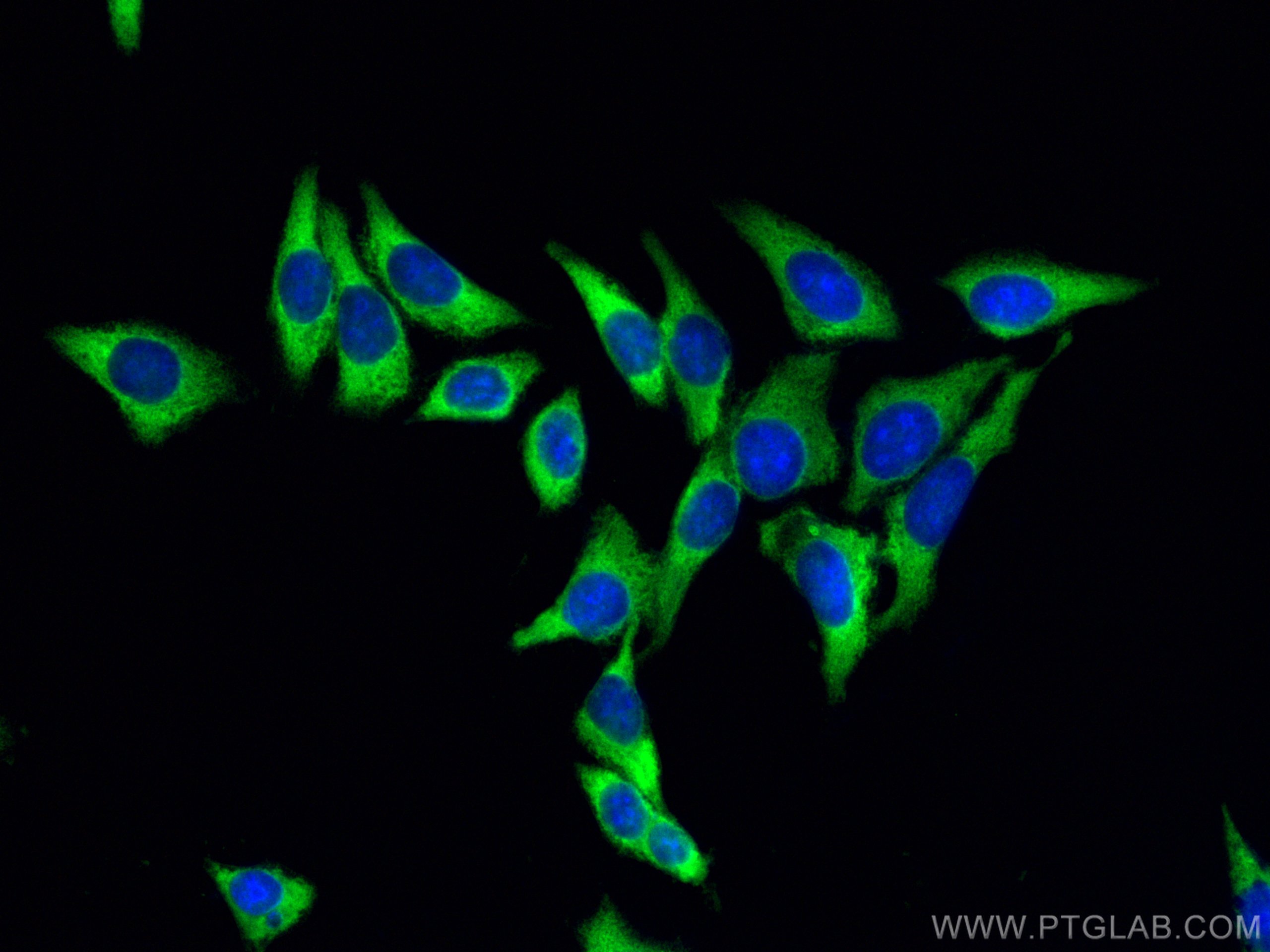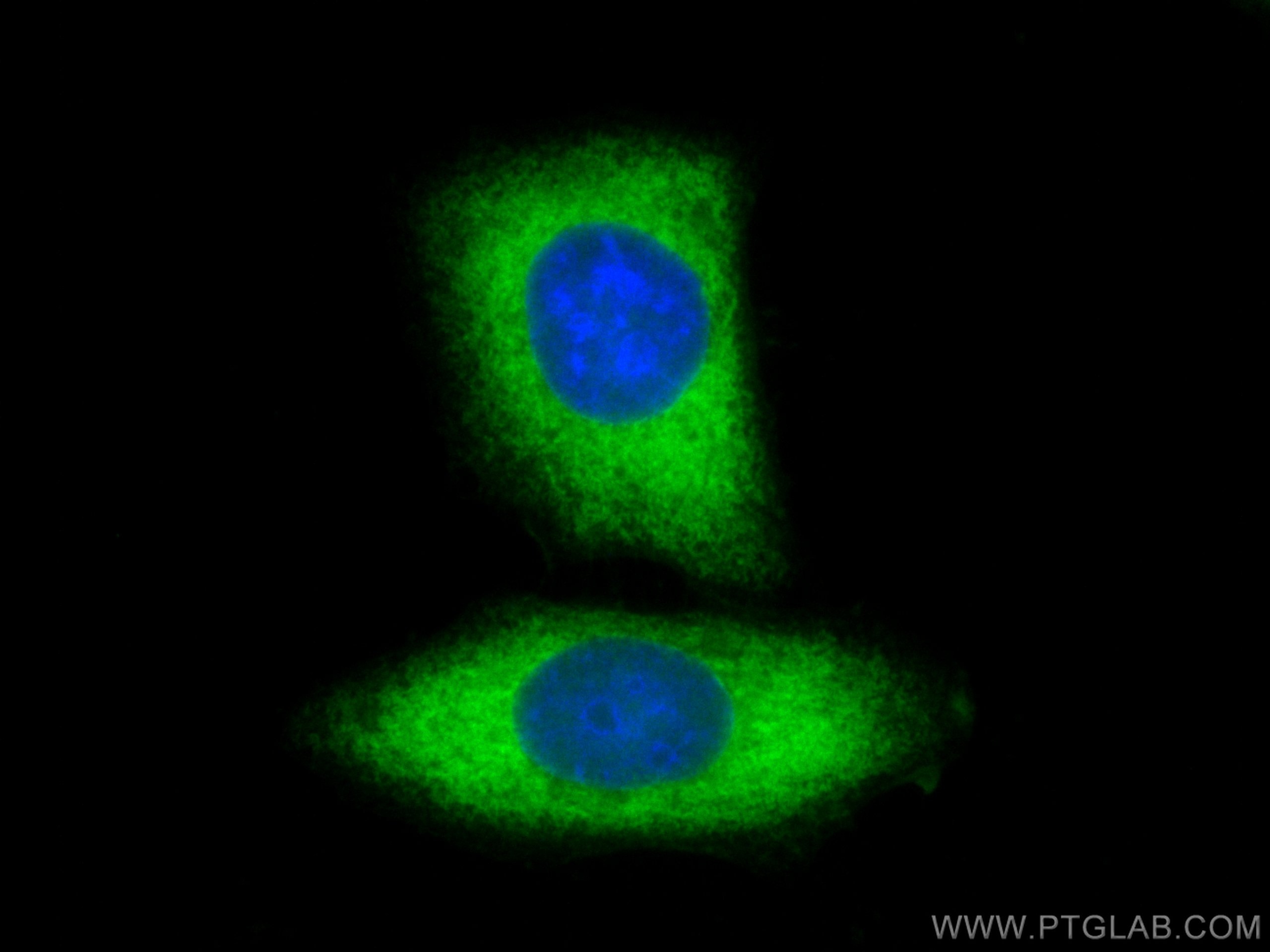Tested Applications
| Positive WB detected in | HEK-293 cells, A431 cells, HeLa cells, MDA-MB-231 cells, mouse testis tissue, rat kidney tissue, Jurkat cells, NIH/3T3 cells, MCF-7 cells |
| Positive IP detected in | mouse kidney tissue |
| Positive IHC detected in | human heart tissue, human skeletal muscle tissue, human testis tissue Note: suggested antigen retrieval with TE buffer pH 9.0; (*) Alternatively, antigen retrieval may be performed with citrate buffer pH 6.0 |
| Positive IF/ICC detected in | HepG2 cells |
Recommended dilution
| Application | Dilution |
|---|---|
| Western Blot (WB) | WB : 1:2000-1:10000 |
| Immunoprecipitation (IP) | IP : 0.5-4.0 ug for 1.0-3.0 mg of total protein lysate |
| Immunohistochemistry (IHC) | IHC : 1:20-1:200 |
| Immunofluorescence (IF)/ICC | IF/ICC : 1:50-1:500 |
| It is recommended that this reagent should be titrated in each testing system to obtain optimal results. | |
| Sample-dependent, Check data in validation data gallery. | |
Product Information
19987-1-AP targets LDHA-Specific in WB, IHC, IF/ICC, IP, CoIP, RIP, ELISA applications and shows reactivity with human, mouse, rat samples.
| Tested Reactivity | human, mouse, rat |
| Cited Reactivity | human, mouse, rat, rabbit, chicken, goat |
| Host / Isotype | Rabbit / IgG |
| Class | Polyclonal |
| Type | Antibody |
| Immunogen |
Peptide Predict reactive species |
| Full Name | lactate dehydrogenase A |
| Calculated Molecular Weight | 37 kDa |
| Observed Molecular Weight | 32-37 kDa |
| GenBank Accession Number | NM_005566 |
| Gene Symbol | LDHA |
| Gene ID (NCBI) | 3939 |
| RRID | AB_10646429 |
| Conjugate | Unconjugated |
| Form | Liquid |
| Purification Method | Antigen affinity purification |
| UNIPROT ID | P00338 |
| Storage Buffer | PBS with 0.02% sodium azide and 50% glycerol, pH 7.3. |
| Storage Conditions | Store at -20°C. Stable for one year after shipment. Aliquoting is unnecessary for -20oC storage. 20ul sizes contain 0.1% BSA. |
Background Information
Lactate dehydrogenase (LDH) is composed of A subunits predominate in skeletal muscle and B subunits are abundantly produced in brain and heart. The LDHA (lactate dehydrogenase A) and COPB1 (coatomer protein complex, subunit beta 1)genes, are involved in energy metabolism and protein transport processes. Both genes might play important roles in muscle development. It has some isoforms with the molecular mass of 27-40 kDa and can form a homotetramer(PMID:11276087). This antibody is specific to LDHA and has no cross reaction to LDHB and LDHC.
Protocols
| Product Specific Protocols | |
|---|---|
| IF protocol for LDHA-Specific antibody 19987-1-AP | Download protocol |
| IHC protocol for LDHA-Specific antibody 19987-1-AP | Download protocol |
| IP protocol for LDHA-Specific antibody 19987-1-AP | Download protocol |
| WB protocol for LDHA-Specific antibody 19987-1-AP | Download protocol |
| Standard Protocols | |
|---|---|
| Click here to view our Standard Protocols |
Publications
| Species | Application | Title |
|---|---|---|
Cell Metab Acetate enables metabolic fitness and cognitive performance during sleep disruption | ||
Nat Cell Biol RIP3 targets pyruvate dehydrogenase complex to increase aerobic respiration in TNF-induced necroptosis | ||
Drug Resist Updat Targeting ACYP1-mediated glycolysis reverses lenvatinib resistance and restricts hepatocellular carcinoma progression
| ||
Cell Stem Cell Region-specific cellular and molecular basis of liver regeneration after acute pericentral injury | ||
Nat Immunol NKILA lncRNA promotes tumor immune evasion by sensitizing T cells to activation-induced cell death. |
Reviews
The reviews below have been submitted by verified Proteintech customers who received an incentive for providing their feedback.
FH Amy (Verified Customer) (02-06-2026) | Really good antibody. Worked well in tumour cell samples.
|
FH Christian (Verified Customer) (01-07-2022) | We expected a huge expression in our primary human chondrocytes and it was perfectly and specifically confirmed by this antibody. The antibody worked also for primary rat chondrocytes. (cell lysis with RIPA-lysis buffer, denaturating conditions)
 |

